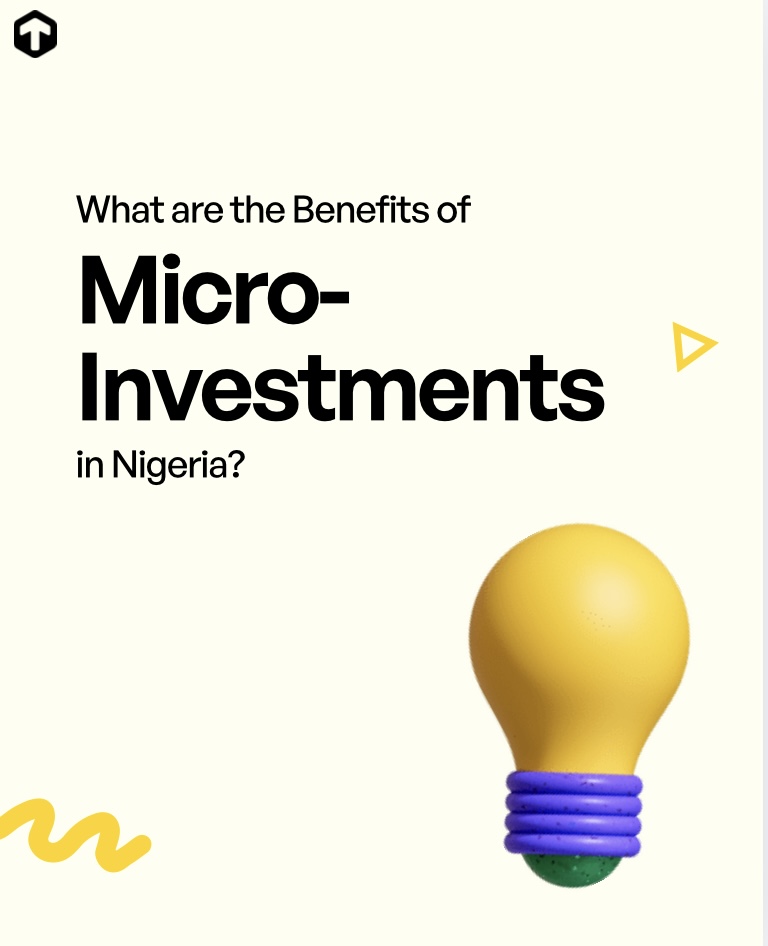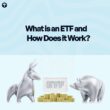I know you’ve probably wondered, “How can I grow my money without breaking the bank?” Maybe you’ve heard about investing, but the thought of needing a large amount of cash to start has discouraged you. Or perhaps you’re worried about putting your hard-earned money into something risky or complicated.
Here’s the truth: you don’t need to be wealthy or a financial expert to start building wealth. Imagine being able to grow your money gradually, one small step at a time, while still handling your daily expenses. That’s exactly what micro-investments offer.
In this blog post, I’ll show you why micro-investments are the perfect solution for anyone in Nigeria looking to secure a better financial future—whether you’re a student, young professional, entrepreneur, or parent.
What Are Micro-Investments?
Micro-investments are small, consistent contributions you make toward growing your wealth. Unlike traditional investments that might require thousands of naira upfront, micro-investing allows you to start with amounts as small as ₦1,000. These small amounts can be invested into things like stocks, mutual funds, or even real estate through fintech platforms and investment apps available in Nigeria.
Think of it as planting tiny seeds. Individually, they may not seem like much, but over time, those seeds grow into something substantial—helping you build a financial cushion, achieve your goals, or even retire comfortably. And the best part? You don’t need to be rich or have special knowledge to start.
Why Should You Consider Micro-Investing in Nigeria?
Living in Nigeria comes with its unique financial challenges. Many people face unstable incomes, rising costs of living, and difficulty saving due to constant emergencies. Micro-investing is like giving yourself a lifeline to financial stability, one small step at a time. Let’s break down the benefits in a way that will resonate with you.
1. Start Small, Dream Big
Micro-investing removes the biggest barrier to investing: the fear of not having enough money to start. You don’t need ₦500,000 to begin. With as little as ₦1000, you can buy into platforms like Trove app and start growing your money.
Here’s why this is powerful: it’s easier to commit to smaller amounts than it is to save large sums. Over time, these small investments add up and can make a significant impact on your financial future.
2. Accessibility for Everyone
Gone are the days when investing was only for the rich or highly educated. With the rise of fintech in Nigeria, micro-investments are now at your fingertips. Platforms like Trove, or Bamboo, allow you to invest in Nigerian stocks, U.S. stocks, or mutual funds with minimal capital.
Even if you’re new to investing, these platforms are designed to be user-friendly, with simple dashboards and tools to guide you. Trove app also has educational resources to help you learn as you go. So, whether you’re a market trader in Lagos, a teacher in Enugu, or a student in Zaria, micro-investments are accessible to you.
3. A Safer Way to Build Wealth
One thing that scares most Nigerians about investing is the fear of losing money. Micro-investing minimizes that fear. Since you’re starting small, the risk is also small. Over time, you can diversify your investments—putting a little in stocks, some in savings plans, and perhaps even a portion in agriculture crowdfunding platforms like Farmcrowdy.
This spreads your risk while ensuring steady growth. And unlike keeping cash in a savings account that offers little to no interest, your micro-investments have the potential to grow significantly.
4. Build a Habit of Saving and Investing
Saving money consistently can be hard, especially with unexpected expenses popping up. Micro-investing helps you develop a savings habit by automating the process. Many platforms allow you to set up recurring deposits, so you can “invest without thinking.”
For example, you could commit to investing ₦2,000 every month automatically. Over time, this becomes a routine, and you’ll hardly notice the deductions. Before you know it, you’ve built a disciplined savings culture that sets you up for long-term success.
5. Achieve Long-Term Goals with Ease
Do you want to own a home, start a business, pay for your child’s education, or simply retire comfortably? Micro-investments can help you achieve these dreams by breaking them down into manageable steps.
Let’s say you want to save ₦1 million for a business idea. That sounds intimidating, right? But if you start investing ₦20,000 every month into a high-yield mutual fund, you could reach that goal in just four years—and that’s without factoring in the additional returns from interest or dividends.
With micro-investments, you’re not just saving money; you’re letting your money grow for you.
6. Inflation Protection
In Nigeria, inflation is a constant reality. The price of goods and services rises steadily, and the value of your money decreases over time. Keeping your cash in a savings account or under your mattress means it’s losing value.
Micro-investments, however, allow your money to grow at a rate that can outpace inflation. For instance, if inflation is at 15% and your investment grows by 20%, you’ve effectively increased your wealth instead of losing it.
7. The Power of Compound Interest
Have you ever heard of the phrase, “Make your money work for you”? That’s exactly what compound interest does. With micro-investments, your small contributions earn interest or returns, which are then reinvested to generate even more returns.
Over time, this snowball effect can lead to exponential growth. The earlier you start, the more you benefit. Even if you’re only investing small amounts now, the long-term impact can be life-changing.
How to Get Started with Micro-Investing in Nigeria
Now that you know the benefits, the next question is: how do you start? Here are some actionable steps:
- Research Platforms: Look into reputable micro-investment platforms in Nigeria like Trove app.
- Set a Budget: Decide how much you can afford to invest regularly without straining your finances.
- Start Small: Don’t wait until you have a lot of money—start with what you have.
- Diversify: Spread your investments across different asset types to reduce risk.
- Be Consistent: Regular contributions are key to growing your wealth over time.
- Monitor Your Progress: Keep track of your investments and make adjustments as needed.

Read Also: What is the Difference Between Saving and Investing
Conclusion
If you’ve been waiting for the right time to start investing, the time is now! Micro-investments are designed for people like you who want to secure their financial future without overwhelming themselves. It’s not about how much you start with; it’s about consistency and letting your money grow over time.
So, what are you waiting for? Take that first step today, and give your future self something to thank you for.





